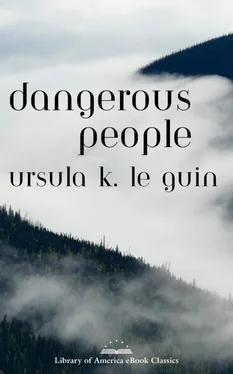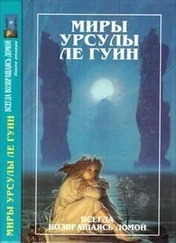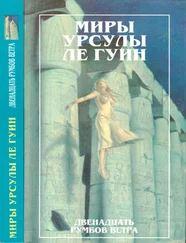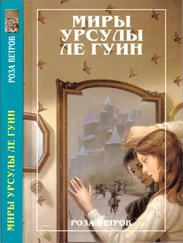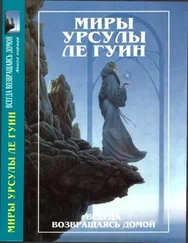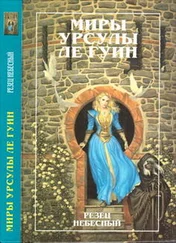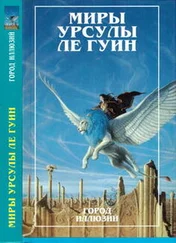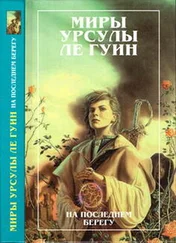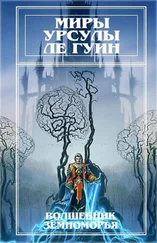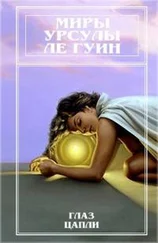“Play Tobbe , if you will,” Modona said.
“We’ll play Tobbe , on the fourth evening.”
She was picking tomatoes now, filling her basket with yellow pear and small red tomatoes. The day was hot and bright, all smells very powerful, the cicadas shrilling loud near and far continuously. Flies swarmed to the blood on the hair of the deer’s death.
Modona said, “That man you met here, the visionary, he came here from Kastoha. He’s always acting crazy. He doesn’t go across into the Four Houses, he just walks around here staring and jabbering, making accusations, making up the world.”
“A moongazer,” said Isitut.
“In what House do you live, woman of Wakwaha?”
“In the moon’s House, man of Telina.”
“I live in this person’s House,” Modona said, lifting the deer’s head with his hand so that the death seemed to look forward. The tongue had swollen and stuck out a little from the black lips. The dancer moved away, picking from the tall, strong-smelling vines.
The hunter asked, “What will you be playing this evening?”
From behind the vines Isitut replied, “I’ll know that when I go back with the tomatoes.” She moved farther away, picking.
Modona went on to the dancing place. Outside his heyimas he stopped, set the death down on the earth, and cut off the four hooves with his hunter’s knife. He cleaned and strung them, tied the string to a bamboo rod, and stuck this in the earth near the southwest corner of the heyimas roof so that the hooves would dry in the sun. He went down into the heyimas to wash, and talked to some people there. He came back up the ladder and walked down the west steps of the roof, looking for the dead deer. It was not where he had set it down.
He walked clear round the heyimas roof, and then around the dancing place, hurrying and staring. Some people greeted him, and he said, “There’s a death walking around on four legs here. Where’s it gone?”
They laughed.
“There’s a two-legged coyote around here,” Modona said. “If you see a spike-horn buck walking without hooves, let me know!” He went off at a run, across the Hinge, to the middle common place. The troupe of players from Wakwaha were all sitting around in the shade of the gallery and the booths, eating flat bread, sheep’s-milk cheese, and red and yellow tomatoes, and drinking dry Betebbes. Isitut was with them, eating and drinking. She said, “So you’re here, man of the Blue Clay. Where’s your brother?”
“That’s what I’d like to know,” he said. He looked around the booths and gallery. A cloud of flies was in one place behind the gallery, and he went to look there, but it was dog turds they were clustering on. The deer was nowhere there. He came back by the players, speaking to them: “So you’re here, people of the Valley. Has any of you seen a deer’s death go by this place?” He made his voice sound easy, but there was an angry look in his body and face. The strangers did not laugh. A man answered politely, “No, we have not seen such a thing.”
“It was to be a gift to you. If you see it, take it, it’s yours,” the hunter said. He looked at Isitut. She was eating, and did not look at him. He went back to the dancing place.
This time he noticed some marks in the dirt at the foot of the southwest side of the roof of the Blue Clay heyimas. He looked with care and saw that farther on there were dry grass stems broken, pointing away from the heyimas. He went on in that direction. Clear over at the bank of the River, down under the bank, he saw something white. He walked towards it, staring. The white being moved. It rose up and faced the hunter. It stood over the deer’s death, which it had been eating. It showed its teeth and cried out.
Modona saw a woman in white clothes. His mind whirled round in his skull and he saw a white dog.
He stooped and picked up rocks and threw them hard, shouting, “Get away! Get off that!”
When a rock hit the dog in the head she shrieked and ran away from the death, downstream, towards the dwelling-houses.
This dog’s mother was hechi, her father dui, and she was unusually tall and strong; her coat of hair was white, with no other color, and her eyes were bluish. When a puppy she had been befriended by Hwette, and they had played together and gone together whenever Hwette went outside the town. Hwette had called her Moondog. After marrying Kamedan Hwette had seldom called the dog to walk or guard, and nobody else knew her well; she would not have anything to do with any human being but Hwette, and kept alone even in dogtown. She was getting old now and had lost keenness of hearing; lately she had been getting thin. Hunger had given her the strength to drag the death from the heyimas down to the River, and she had eaten most of one haunch. Bewildered by the pain where the rock had struck her between eye and ear, she ran up into Telina, between the houses, to Hardcinder House.
Inside Shamsha’s household the people heard a clawing and a crying at the outer door, which was closed to keep out the day’s heat. Fefinum heard the voice crying and said, “She’s back! She has come back!” Speaking, she cowered down in the corner of the room farthest from the door.
Shamsha jumped up and said, talking loudly, “Children playing on the porches, it’s a shame, it’s never quiet here!” She stood in front of her daughter, concealing her from Duhe.
Duhe looked at them, went over to the door, and opened it enough to look out. She said, “It’s a white dog, crying here. Hwette used to walk with this dog, I think.”
Shamsha came to look. “Yes, but not for years now,” she said. “Let me drive her away. She’s crazy, coming here, trying to get inside the house like that. Old and crazy. Get away, get off, you!” She took up a broom and poked it out the door at Moondog, but Duhe kept the broom from striking the dog, and said, “Please wait a minute. It seems to me the dog’s been hurt and wants help.” She went out to look more closely at Moondog’s head, having seen blood on the white hair about the eye. Moondog cringed and snarled at first but feeling that the doctor was not at all afraid, she held still. When the doctor’s hands touched her she felt great authority in them, and she made no objection while Duhe examined the wound the rock had made between her left ear and eye.
Duhe spoke to her: “What a beautiful old woman-dog you are, though a queer color for a dog, better for a sheep; and you haven’t been overeating recently, to judge by your ribs. Now what happened, did you run into a branch? No, this looks more like a rock was thrown at you and you didn’t dodge it; that’s not so smart, old woman-dog. Shamsha, may I please have some water and a clean cloth to wash this injury with?”
The old woman brought a bowl of water and some rags, grumbling, “That dog is worthless, of no account.”
Duhe cleaned the wound. Moondog made no protest and stood still and patient, trembling a little in the hindquarters. When Duhe was done the dog wagged her tail several times.
“Please lie down now,” the doctor said.
Moondog looked into the doctor’s eyes, and lay down with her head on her outstretched front legs.
Duhe stroked her head behind the ears. Shamsha was inside the room, Fefinum had come near the door to watch. Duhe said to them, “She may have some concussion of the brain. That was a hard blow.”
Shamsha asked, “Will she go into fits?”
The doctor said, “She might. More likely she’ll sleep it off, if she’s allowed to stay in a quiet place where she isn’t disturbed. Sleep is a wonderful healer. I didn’t have much of it myself last night, between the moon and your grandson the Monkeyflower.” She came back indoors, bringing the bowl and rags. Fefinum kept her back turned, and started cutting up cucumbers for pickling. Duhe said, “That is the dog who used to go along with Hwette, isn’t she? What did Hwette call her?”
Читать дальше
